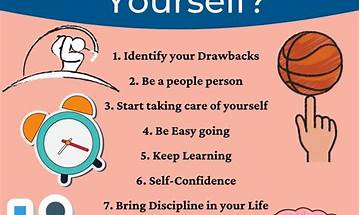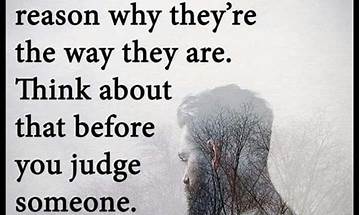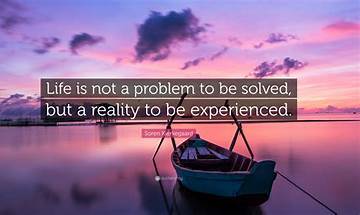Live as if the superego doesn't exist.

Afraid of the infinite truth,
There is joy in entering an inch.
01 superego work and superego life
An adult has been doing a job that he doesn't like and is not good at for a long time, and he is afraid to leave easily for fear of being judged as a deserter.
In an article by Sun Ping, a psychological consultant, he defined this kind of work as "a superego job".
Before understanding "superego work", it is necessary to simply understand what "superego" is under popular science. In the theory of spiritual structure, Freud divided the spiritual structure into three classes: id, ego and superego. The superego is the last part of the spiritual structure. Superego evolved from suppressing instinctive requirements, and in Freud's theory of personality structure refers to the moral conscience and self-ideal part of personality structure. Simply put, it is explained as follows.
However, this part of social moral standards and self-ideal is not what an individual really wants, and it is also difficult to achieve in reality. It usually internalizes the wishes of early caregivers represented by parents, and this job is done instead of them, even they can't do it themselves. Therefore, "superego work" presents the following characteristics:
1. I am not good at it, and it is always difficult to get improved.
2. I don't like it, and I can't cultivate my interest for a long time.
3. Can't evacuate. Once you want to change jobs according to your own wishes, there will be something like "stand up where you fall"; "If you can't do this, what else can you do?" ; "Don't be a deserter" ... and so on, self-evaluation, or projection, feeling that others will make comments on themselves, swept in.
Sun Ping, WeChat official account: Psychology in Sun Ping neither likes nor is good at it, and wants to take the "superego work" that can't be taken yet.
A job that I am not good at, I don't like, and I can't even leave. It is conceivable that it consumes my potential extremely and will inevitably make people feel great pain. Because this is not your own battlefield at all, even if you have made great achievements in this battlefield, you have paid a great price-you have never lived for yourself.
From this, I thought of a superego life. Work is a part of life, and what will happen if a person takes full control of his life with this "superego"?
I don't know how to live, I don't like my life, and I can't escape from the present life.
Life can't move in this kind of hardship, and it may be light to develop into depression. Superego work is a microcosm of superego life. I often see many people doing a kind of "superego work" in my daily life and psychological hotline. They don't like it or are good at it, so they can't leave here. They can only vent their pain by complaining constantly. Extending to life, it is miserable.
Strong self and the power of liking.
Does that person have a chance to solve this kind of problem? I thought that since it is "superego", there must be id and ego at work. We can illustrate how the three functions through an example of daily life.
Suppose a person is faced with a moral decision: whether to steal a favorite item in a store.
Id: The ID is the part that wants to satisfy the desire immediately. In this case, I may have desires, such as wanting to own this item, because it looks attractive. I may have an impulse and a desire to steal things immediately to satisfy this desire, regardless of the consequences.
Superego: Superego is the part that internalizes moral and social norms. In this case, the superego may stop the impulse of the id. The superego will remind this person that stealing is immoral and illegal, which violates the values and norms of society. The superego may cause guilt and tell this person that he should not steal.
Ego: Ego is the part that tries to balance the conflict between id and superego in decision-making. In this case, the ego will consider the realistic consequences and social rules. I will try to find a way to satisfy my desire and abide by the moral principles of superego. I may think of other legal ways to get this item, or decide to give up my desire and choose not to steal it.
In this example, the id wants to satisfy the desire immediately, the superego emphasizes the moral constraint, and the ego seeks a balance between the two. The final decision depends on how the self weighs the needs and conflicts among the three. This kind of balance and interaction is very common in our daily life. It shapes our behavior and decision-making, and reflects our inner conflicts and values.
When the id and ego are suppressed by the power of the superego and fail to play their due functions, they will be bullied by the superego. Take fishing as a simple example. A person who is tired from work is trying to fish for a while. However, the superego then stood up and accused, "Have you forgotten your goal? Now that the market environment is so bad, you are still fishing if you don't work hard? " The ego tries to adjust the conflict between the id and the superego. It is reasonable for the ego to feel tired and have a rest, but the superego seems to be right. People should not fish during working hours, but should work hard. Self-defeat, so we fell into shame, unable to rest, and continued to work hard, but unhappy.
On the one hand, I need to normalize my needs. Instinct and desire are not shameful, just like eating and sleeping, these are normal needs of people, and we realize that the needs generated by instinct or desire need to be met. On the other hand, self-regulation is stronger. Speaking of this, the formation of self is a complicated proposition. According to Freud's point of view, in the early childhood, the ability of self to learn to meet needs in a balanced way without blindly pursuing satisfaction is gradually formed through interaction with the main caregivers. Not everyone has been taken good care of, so the self-regulation ability varies widely.
When the internal war is full of smoke, it is common that the ID is not recognized, the ego is defeated and hijacked by the superego. Only by developing a stronger self can we better solve the internal conflicts and adapt to the challenges and pressures in life.
Going back to the three conditions of meeting the work of superego, is there a more important condition among whether you like, are good at and can leave? Teacher Sun Ping thinks that "like" has the greatest weight, and I deeply agree. "Like" is a result of self-regulation, and it is also a reward for one's self. Whether you are good at it or not, or whether you can make money, a person may be happy in a job he likes. At this time, the problem becomes how to do a job you like. Because as long as you solve the problem of whether you like it or not, it is not a superego job.
I once again think of life, whether you are good at living, whether you have the right to escape from life and the life you like. Not every problem needs to be solved. If you are living the life you like, you have actually lived a much happier life than the person who is held hostage by the superego.
Go and live as if the superego does not exist.
There is a moral policeman in everyone's heart. The "superego" stands on the moral high ground and always stands out to criticize the ID and ego.
An over-moral person is not allowed to do anything beyond moral norms, otherwise he will think he is a bad person. The morality here has the desire to internalize the early caregivers represented by parents, as well as the discipline from society.
The three main characters in Crouching Tiger, Hidden Dragon, Yu Jiaolong, Yu Xiulian and Li Mubai, can well correspond to the three forces of id, ego and superego.
Li Mubai is a typical person dominated by superego. He and Yu Xiulian have loved each other for many years, but they only treated each other as bosom friends and never stayed together. The reason is that many years ago, Yu Xiulian's fiance died trying to save Li Mubai, and Li Mubai's superego is so powerful that he can't avoid the condemnation of the inner moral police.
However, when Yu Jiaolong, a person dominated by the "ID", appeared, he was instinctively attracted by this force representing vitality, with freedom, willfulness, strong love and aggression, ignoring moral norms and resisting authority ... This is exactly the freedom and strength that a person whose ID is deeply suppressed yearns for. Therefore, he used her as a disciple to disguise himself, which not only saved his reputation as a warrior, but also bypassed his inner moral judgment.
Yu Xiulian is the best person with self-function development among the three people, representing a person's "self". Although she is bound by feudal ethics, her heart is very transparent, and she can handle the complicated situation of Jade Jiaolong stealing swords without concealing her love for Li Mubai. She once said to Li Mubai: "Repression will only make feelings stronger."
Judging from the endings of the last three people, Yu Xiulian is the only one who survived, and Yu Jiaolong jumped into the abyss, which is the price paid for the extreme indulgence of the ID and the desperate pursuit of freedom. Li Mubai died to save Yu Jiaolong. At the last moment of his life, he broke through the line of superego and confessed his love to Yu Xiulian. Unfortunately, it was too late.
It can be seen that a healthy and adaptable mental state must be the result of full self-regulation. It is neither excessively suppressing natural desires, nor indulging in the id, but the three forces reach a balance.
How can we achieve a balance? Yu Xiulian has actually told us the answer: "No matter what your decision on this life is, you must treat yourself sincerely." In short, it is to be honest with yourself, be more aware of yourself, understand and accept your real demands, and live yourself.
For modern people, it seems that the external environment makes us in a position of being unable to roll and lying down. The desire of the id has always been there, but it has only been suppressed, and the severe superego has been condemning itself from beginning to end, so we dare not rest, dare not resign, and dare not travel ...
I am not worried that a person will have no instinctive desire, but I deeply feel that the strictness of superego restricts a person too much. It contains the expectations of various roles, such as father, mother, children, employees, boss ... but there is no one in it.
Recently, when I brushed bilibili, I brushed the Cut of an ancient Korean drama "My name is San shun Jin", which reminded me of the poem that touched my heart when I saw it at that time. It was quoted from Alfred De's "Go to Love":
Love as if you have never been hurt;
Love, like you? never been hurt
Dance like no one is watching;
Dance, like no one?watching
Sing like no one is listening;
Sing, like nobody?listening
Work like you don't need money;
Work, like you don?need money
Live as if you were in heaven on earth;
Live, like you? on heaven on earth
Now, let me add:
Live as if the superego doesn't exist.
Declaration: All article resources on this website, unless otherwise specified or labeled, are collected from online resources. If the content on this website infringes on the legitimate rights and interests of the original author, you can contact this website to delete it.






